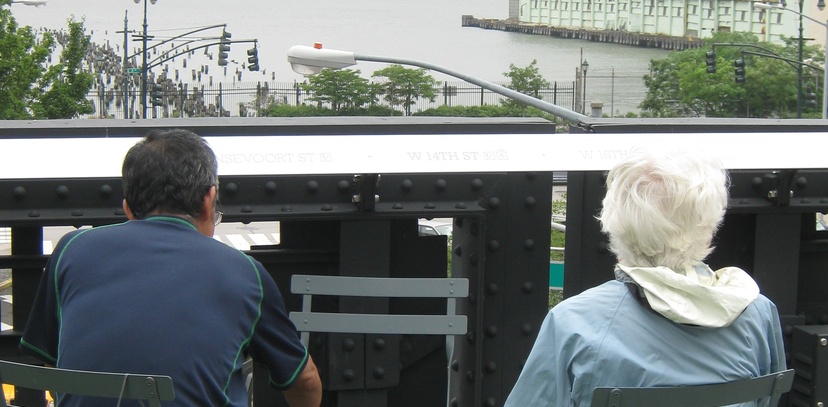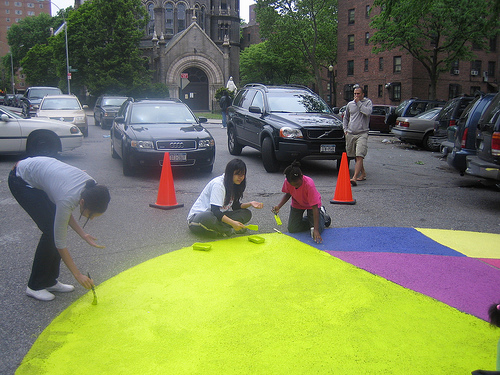
This article was first published by Urban Times in March 2012.
The social dimensions of sustainability are largely overlooked in debates, policy and practice around sustainable urbanism. Environmental issues dominate thinking, and ecological and technological solutions dominate practice. This article argues it is time to put people back into the picture and develop a broader understanding of what sustainability means for cities.In the past decade, the idea of sustainable cities has generated a proliferation of international initiatives, policies, networks and conferences, to drive new ideas and approaches to urban planning and development.
The sustainable cities debate is underpinned by the idea that planned, efficient, well-run cities can address the challenges of climate change, population growth, overcrowding and pollution, through a combination of urban planning, technological infrastructure and smart architecture. As a result, environmental performance and technological innovation dominate thinking on urban sustainability. Much effort, thinking and investment is focused on reducing energy consumption, developing sustainable transport and renewable energies, greening buildings, using smart grids, networks and data to manage energy use on a city-wide basis.
Focusing on ecology, resource use and ‘greening’ enables us to avoid difficult questions about where people fit in sustainable cities…
However, the stream of protests in major cities in 2011 – from London’s riots to the Occupy movement, protests against banks and the financial crisis, to public demands for democracy and accountability in the Middle East – suggest that a much broader, and yet more subtle, understanding of urban sustainability is now long overdue. These events suggest that focusing only on economic growth, reducing carbon, or smart ways to manage energy, will not make sustainable urban places. Prioritizing sustainable technology – whether hydrogen buses or solar panels – removes people, their social needs, and the particular cultural and political dynamics of places, from the sustainability debate. That is not to say that an environmental perspective is not a crucial dimension of how we understand sustainability. But it is just that – one dimension of the debate. Focusing on ecology, resource use and ‘greening’ enables us to avoid difficult questions about where people fit in sustainable cities: What does urban sustainability mean? Who is it sustainable for? What is being sustained? And, why?
Arguably, urban sustainability should be about shaping and constructing places – old and new – that can flourish socially and economically now and into the future, and minimize negative impacts on the environment through careful resource use and adoption of new technologies. But places need people in order to flourish, which means urban sustainability needs to take account of urban citizens in their infinite variety – individuals, employees, voters, residents in neighbourhoods, members of organizations, communities of interest, as well as businesses of all shapes and sizes.

Paint the Pavement by MJI Photos
Rebalancing how we understand urban sustainability to take account equally of social, economic and environmental issues brings the well-being and quality of life of individuals and neighbourhoods back into the debate; and in the process reconnects spatial and policy planning to peoples’ real needs and everyday lived experience. This means taking account of the messy reality of urban social life – the needs and aspirations of different neighbourhoods, some wealthy, some less so; the needs of old and young people, families and people working in the city in all kinds of occupations; and the multitude of different factors it takes to survive and flourish in the city – access to jobs, good quality housing, safe and integrated neighbourhoods, educational opportunities, affordable healthcare, having family, friends and support networks, the chance to take part in the social and cultural life of the city, ways to participate in political decision making and voice concerns.
Post by Saffron Woodcraft, Founding Director, Social Life.